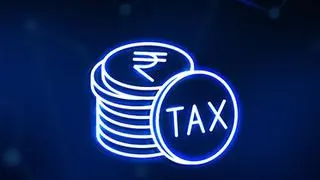One of the announcements that Finance Minister Nirmala Sitharaman made in her Budget speech was a dispute resolution scheme, called Vivad se Vishwas, for income-tax payers. A Bill to this effect has also been introduced in the Lok Sabha in the current Budget session of Parliament. The scheme is time bound and the last date will be notified after the bill is enacted into law. Let’s look at the contours of the proposed scheme and whom it will benefit.
Who is eligible?
All types of taxpayers, including individuals, are covered under this scheme. In case you have income-tax cases stuck in appeal at the Commissioner of Income-Tax (Appeals), Income-Tax Appellate Tribunal(ITAT), High Court or Supreme Court as of January 31, 2020, you can apply to settle them under this scheme. These cases could pertain to a disputed tax demand along with penalty, interest or fees, or disputed penalty, interest or fees without any income-tax demand.
The Centre announced yesterday that disputes in arbitration, revision cases and disputes pending in debt recovery tribunals are also included in the scheme.
The settlement amount
In case you apply to settle your case, and the income-tax dispute involves tax, interest and penalty on that tax amount, you will only need to pay the tax amount. Once you apply for settlement of your dispute, all the proceedings under the income-tax law relating to the dispute will end once you make the payment as determined under the scheme.
For example, suppose you paid ₹1,00,000 as income-tax. But the Income-Tax Department assessed your income-tax dues as ₹1,50,000, and also asked you to pay ₹20,000 as interest and ₹1,00,000 as penalty. The total dispute amount comes up to ₹1,70,000.
Suppose you went on appeal against the addition of income and interest and penalty in the order passed by the department. Under Vivad se Vishwas, you have the option of paying only the additional ₹50,000 tax demand and settling your case by March 31, 2020.
If you settle the case on or after April 1, 2020 till the last date (to be notified by the Centre), you will have to pay the ₹50,000 and an additional 10 per cent of the disputed tax amount (10 per cent of ₹50,000) i.e. ₹5,000. The total settlement amount after March 31, 2020 till the last date would be ₹55,000.
In case your dispute only relates to interest, penalty or fees demanded by the Income-Tax Department, if you apply under Vivad se Vishwas before March 31, 2020 you will only have to pay 25 per cent of the disputed amount to settle the case.
If you apply to settle the case after March 31, 2020 but before the last date, you will have to pay 30 per cent of the disputed amount of interest, penalty or fees.
What’s not eligible
While the government is seeking to reduce litigation through the new scheme, it has also specifically excluded certain category of cases. These are:
- Cases relating to search and seizure proceedings where recovery is above Rs 5 crore
- Cases where prosecution has been initiated before the date of filing declaration under Vivad se Vishwas
- Cases where tax arrears relate to undisclosed income from a source outside India or an asset located outside India
- Cases where tax arrears relate to the assessment or reassessment on the basis of information received under double taxation avoidance agreements
- Cases where the Commissioner, Income-Tax (Appeals) has issued an order that has enhanced an assessee’s income on or before January 31, 2020
- Cases where prosecution has been initiated under specified laws such as the Indian Penal Code, Unlawful Activities (Prevention) Act 1967, and Narcotic Drugs and Psychotropic Substances Act 1985, among others.
How to file an application
Once the scheme and its rules are notified, you can apply for settlement under Vivad se Vishwas by giving a declaration in the prescribed form to a designated authority for this purpose. Within 15 days of filing the declaration, you will receive a certificate from the designated authority specifying the tax arrears and the amount payable by you.
Any appeal with the Commissioner of Income-Tax (Appeals) and ITAT shall be deemed to be withdrawn. In respect of appeals/writs pending before the High Court or Supreme Court, they must be withdrawn and proof of doing so should be filed with the declaration. Also, if you have initiated any arbitration, conciliation and mediation proceedings with respect to your tax dispute, proof of withdrawal of the same must be enclosed with the declaration.
Within 15 days of receiving the certificate mentioned above, you must pay the disputed amount and inform the designated officer in a form that will be prescribed under the rules. The designated officer will then pass an order that the matters covered by his or her order relating to income-tax cases referred to therein will not be reopened under the Income-Tax Act, or any other law, or under any agreement between India and any other country.
There will also be no proceedings against you related to those disputed cases in the future. Also, any amount you have paid will not be refunded.








Comments
Comments have to be in English, and in full sentences. They cannot be abusive or personal. Please abide by our community guidelines for posting your comments.
We have migrated to a new commenting platform. If you are already a registered user of TheHindu Businessline and logged in, you may continue to engage with our articles. If you do not have an account please register and login to post comments. Users can access their older comments by logging into their accounts on Vuukle.